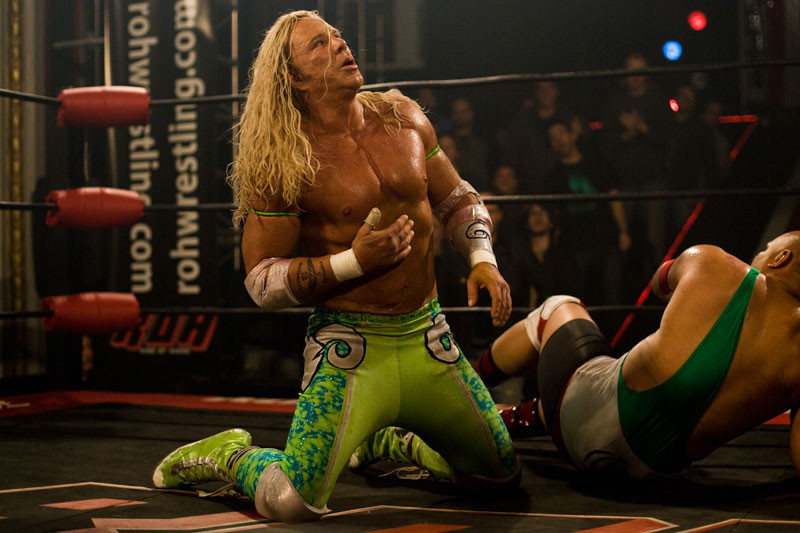Don’t call it a comeback
Mickey Rourke’s performance may be career-redeeming, but the character he portrays doesn’t find similar redemption
Even though everything in Randy ‘The Ram’ Robinson’s life is fake, the effects of his choices are killing him in a very real way.
Professional wrestling and art cinema are unlikely bedfellows, but in The Wrestler, the new film from director Darren Aronofsky, the two disparate worlds have found some common ground.
‘The Ram,’ as played by Mickey Rourke (9 1/2 Weeks, Sin City) in a career-redeeming role, is a professional wrestler 20 years past his prime. Long gone are the packed hockey arenas and large paycheques of his glory days – he now appears in community clubs where he makes just a little less than he needs to survive.
To say that Randy is in rough shape as the film opens is a gross understatement, and his condition only degrades from there. After a serious heart attack, he feels the need to find something real amongst the shattered façade that has constituted his life so far. So he quits wrestling, seeks out his estranged daughter (Evan Rachel Wood) and attempts to start a romance with his favourite stripper (Marisa Tomei).
Though the story sounds like a run-of-the-mill washed-up fighter movie, The Wrestler is elevated beyond its counterparts by the pitch-perfect acting of Rourke, who is so convincing as the long suffering, humiliated former-star that one can’t help but feel he’s living the role a little too closely.
Screenwriter Robert Siegel does some great work as he gleans a lot from the much-maligned world of professional wrestling. He uses the pseudo-sport as a perfect metaphor for the deterioration of all the characters in the film. Sure it’s rigged and choreographed, but that doesn’t change the fact that the pain suffered by the participants leaves actual scars, just as the fake sex Tomei’s character sells leaves emotional scars on her which do not heal easily.
Aronofsky’s films are often filled with characters on the far edge of desperation, and this picture is no exception. This is not a comeback film, as any redemption its hero gains is lost due to the fact that every one of his decisions is based on a fantasized version of himself that he’s created; a version that his aging body can no longer support.
Though you’ll probably feel about as devastated emotionally as Rourke is physically when the credits roll, the film is well worth seeing. Perhaps it’ll be a nice outing for you and that wrestling fan friend of yours you can never get along with.
Published in Volume 63, Number 16 of The Uniter (January 15, 2009)








